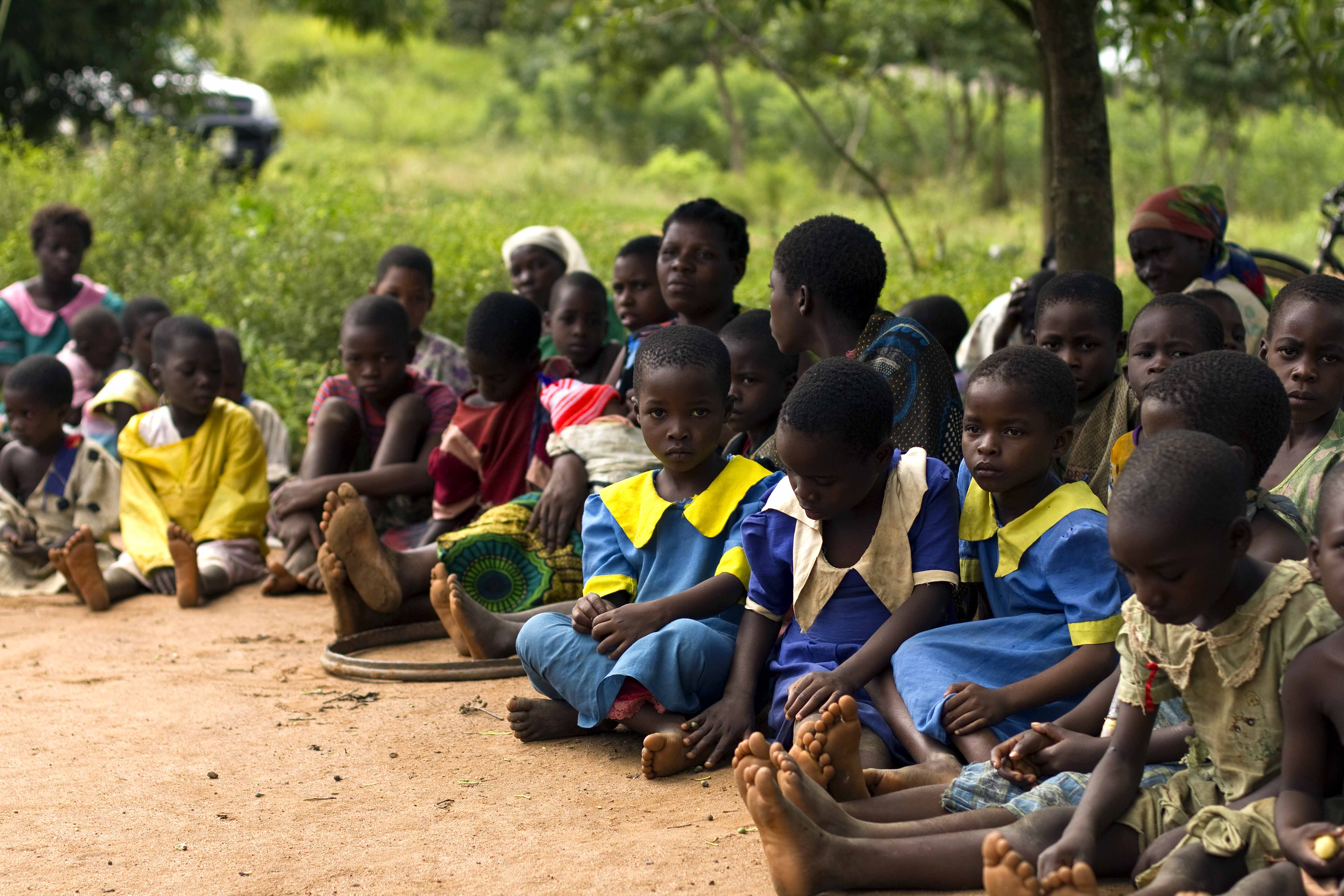|
Malawi Adventist University
Malawi Adventist University is a private Christian university in Ntcheu Malawi affiliated to the Seventh-day Adventist Church. It is run by the Seventh-day Adventist Church, and is part of its system of higher education the Seventh-day Adventist education system, the world's second largest Christian school system. History The Malawi Adventist University was established by an action of the Executive Committee of the Malawi Union Mission of the Seventh-day Adventist Church. As early as 1996, the action was taken to upgrade what was the Lakeview Seminary to a Junior College. It was envisaged to offer four year degree programmes of an already existing University. At that time the University of Eastern Africa, Baraton was the best candidate. In 1999 the Malawi Union Mission agreed to run the four year degree programmes. In January 2000 the institution was opened as Malawi Adventist College. In the middle of 2006, the Malawi Union Officers, opened new negotiations with the Universi ... [...More Info...] [...Related Items...] OR: [Wikipedia] [Google] [Baidu] |
Private University
Private universities and private colleges are institutions of higher education, not operated, owned, or institutionally funded by governments. They may (and often do) receive from governments tax breaks, public student loans, and grant (money), grants. Depending on their location, private universities may be subject to government regulation. Private universities may be contrasted with public university, public universities and national university, national universities. Many private universities are nonprofit organizations. Africa Egypt Egypt currently has 20 public universities (with about two million students) and 23 private universities (60,000 students). Egypt has many private universities, including The American University in Cairo, the German University in Cairo, the British University in Egypt, the Arab Academy for Science, Technology and Maritime Transport, Misr University for Science and Technology, Misr International University, Future University in Egypt and ... [...More Info...] [...Related Items...] OR: [Wikipedia] [Google] [Baidu] |
Seventh-day Adventist Church
The Seventh-day Adventist Church is an Adventism, Adventist Protestantism, Protestant Christian denomination which is distinguished by its observance of Saturday, the Names of the days of the week#Numbered days of the week, seventh day of the week in the Christian Gregorian calendar, (Gregorian) and the Hebrew calendar, as the Sabbath, and its emphasis on the imminent Second Coming (advent) of Jesus Christ. The denomination grew out of the Millerism, Millerite movement in the United States during the mid-19th century and it was formally established in 1863. Among its co-founders was Ellen G. White, whose extensive writings are still held in high regard by the church. Much of the theology of the Seventh-day Adventist Church corresponds to common Evangelicalism, evangelical Christian teachings, such as the Trinity and the Biblical infallibility, infallibility of Scripture. Distinctive post-tribulation rapture, post-tribulation teachings include the Christian mortalism, unconscio ... [...More Info...] [...Related Items...] OR: [Wikipedia] [Google] [Baidu] |
Ntcheu
Ntcheu is a town located in the Central Region of Malawi. It is the administrative capital of Ntcheu District Ntcheu is a district in the Central Region of Malawi. It borders with the country of Mozambique. The district headquarters is Ntcheu, known as BOMA in the local language, but is most commonly called Mphate. It is run by Yeneya, the village head .... Ntcheu is known for its produce, including Irish potatoes. Demographics References Populated places in Central Region, Malawi {{malawi-geo-stub ... [...More Info...] [...Related Items...] OR: [Wikipedia] [Google] [Baidu] |
Malawi
Malawi (; or aláwi Tumbuka: ''Malaŵi''), officially the Republic of Malawi, is a landlocked country in Southeastern Africa that was formerly known as Nyasaland. It is bordered by Zambia to the west, Tanzania to the north and northeast, and Mozambique to the east, south and southwest. Malawi spans over and has an estimated population of 19,431,566 (as of January 2021). Malawi's capital (and largest city) is Lilongwe. Its second-largest is Blantyre, its third-largest is Mzuzu and its fourth-largest is its former capital, Zomba. The name ''Malawi'' comes from the Maravi, an old name for the Chewa people who inhabit the area. The country is nicknamed "The Warm Heart of Africa" because of the friendliness of its people. The part of Africa now known as Malawi was settled around the 10th century by migrating Bantu groups . Centuries later, in 1891, the area was colonised by the British and became a protectorate of the United Kingdom known as Nyasaland. In 1953, it b ... [...More Info...] [...Related Items...] OR: [Wikipedia] [Google] [Baidu] |
Christianity
Christianity is an Abrahamic monotheistic religion based on the life and teachings of Jesus of Nazareth Jesus, likely from he, יֵשׁוּעַ, translit=Yēšūaʿ, label=Hebrew/Aramaic ( AD 30 or 33), also referred to as Jesus Christ or Jesus of Nazareth (among other names and titles), was a first-century Jewish preacher and religious .... It is the Major religious groups, world's largest and most widespread religion with roughly 2.38 billion followers representing one-third of the global population. Its adherents, known as Christians, are estimated to make up a majority of the population in Christianity by country, 157 countries and territories, and believe that Jesus in Christianity, Jesus is the Son of God (Christianity), Son of God, whose coming as the Messiah#Christianity, messiah was Old Testament messianic prophecies quoted in the New Testament, prophesied in the Hebrew Bible (called the Old Testament in Christianity) and chronicled in the New Testamen ... [...More Info...] [...Related Items...] OR: [Wikipedia] [Google] [Baidu] |
Seventh-day Adventist Education
The Seventh-day Adventist educational system, part of the Seventh-day Adventist Church, is overseen by the General Conference of Seventh-day Adventists located in Silver Spring, Maryland. The educational system is a Christian school-based system. The Seventh-day Adventist Church has associations with a total of 8,515 educational institutions operating in over 100 countries around the world with over 1.95 million students worldwide. The denominationally-based school system began in the 1870s.Education on the church's official website The church supports holistic education: Education by level Primary There are 5,915 Primary Schools worldwide (June 2018 report).[...More Info...] [...Related Items...] OR: [Wikipedia] [Google] [Baidu] |
Adventist News Network
The Seventh-day Adventist Church is an Adventist Protestant Christian denomination which is distinguished by its observance of Saturday, the seventh day of the week in the Christian (Gregorian) and the Hebrew calendar, as the Sabbath, and its emphasis on the imminent Second Coming (advent) of Jesus Christ. The denomination grew out of the Millerite movement in the United States during the mid-19th century and it was formally established in 1863. Among its co-founders was Ellen G. White, whose extensive writings are still held in high regard by the church. Much of the theology of the Seventh-day Adventist Church corresponds to common evangelical Christian teachings, such as the Trinity and the infallibility of Scripture. Distinctive post-tribulation teachings include the unconscious state of the dead and the doctrine of an investigative judgment. The church places an emphasis on diet and health, including adhering to Kosher food laws, advocating vegetarianism, and its ... [...More Info...] [...Related Items...] OR: [Wikipedia] [Google] [Baidu] |
List Of Seventh-day Adventist Colleges And Universities
A ''list'' is any set of items in a row. List or lists may also refer to: People * List (surname) Organizations * List College, an undergraduate division of the Jewish Theological Seminary of America * SC Germania List, German rugby union club Other uses * Angle of list, the leaning to either port or starboard of a ship * List (information), an ordered collection of pieces of information ** List (abstract data type), a method to organize data in computer science * List on Sylt, previously called List, the northernmost village in Germany, on the island of Sylt * ''List'', an alternative term for ''roll'' in flight dynamics * To ''list'' a building, etc., in the UK it means to designate it a listed building that may not be altered without permission * Lists (jousting), the barriers used to designate the tournament area where medieval knights jousted * ''The Book of Lists'', an American series of books with unusual lists See also * The List (other) * Listing ... [...More Info...] [...Related Items...] OR: [Wikipedia] [Google] [Baidu] |
Seventh-day Adventist Theology
The theology of the Seventh-day Adventist Church resembles that of Protestant Christianity, combining elements from Lutheran, Wesleyan-Arminian, and Anabaptist branches of Protestantism. Adventists believe in the infallibility of Scripture and teach that salvation comes from grace through faith in Jesus Christ. The 28 fundamental beliefs constitute the church's official doctrinal position. There are many teachings held exclusively by Seventh-day Adventists. Some distinctive doctrines of the Seventh-Day Adventist church which differentiate it from other Christian churches include: the perpetuity of the seventh-day Sabbath, the unconsciousness of man in death, conditional immortality, an atoning ministry of Jesus Christ in the heavenly sanctuary, and an “ investigative judgment” that commenced in 1844. Furthermore, a traditionally historicist approach to prophecy has led Adventists to develop a unique system of eschatological beliefs which incorporates a commandment-ke ... [...More Info...] [...Related Items...] OR: [Wikipedia] [Google] [Baidu] |
History Of The Seventh-day Adventist Church
The Seventh-day Adventist Church had its roots in the Millerite movement of the 1830s to the 1840s, during the period of the Second Great Awakening, and was officially founded in 1863. Prominent figures in the early church included Hiram Edson, Ellen G. White, her husband James Springer White, Joseph Bates, and J. N. Andrews. Over the ensuing decades the church expanded from its original base in New England to become an international organization. Significant developments such the reviews initiated by evangelicals Donald Barnhouse and Walter Martin, in the 20th century led to its recognition as a Christian denomination. Foundations, 1798–1820s The Second Great Awakening, a revival movement in the United States, took place in the early 19th century. The Second Great Awakening was stimulated by the foundation of the many Bible Societies which sought to address the problem of a lack of affordable Bibles. The spread of Bibles allowed many who had not had one to be a ... [...More Info...] [...Related Items...] OR: [Wikipedia] [Google] [Baidu] |
Adventist Colleges And Universities
Adventism is a branch of Protestant Christianity that believes in the imminent Second Coming (or the "Second Advent") of Jesus Christ. It originated in the 1830s in the United States during the Second Great Awakening when Baptist preacher William Miller first publicly shared his belief that the Second Coming would occur at some point between 1843 and 1844. His followers became known as Millerites. After Miller's prophecies failed, the Millerite movement split up and was continued by a number of groups that held different doctrines from one another. These groups, stemming from a common Millerite ancestor, became known collectively as the Adventist movement. Although the Adventist churches hold much in common with mainline Christianity, their theologies differ on whether the intermediate state of the dead is unconscious sleep or consciousness, whether the ultimate punishment of the wicked is annihilation or eternal torment, the nature of immortality, whether the wicked ... [...More Info...] [...Related Items...] OR: [Wikipedia] [Google] [Baidu] |
Education In Malawi
Education in Malawi stresses academic preparation leading to access to secondary school and universities. However, few students go on to high school or university. The dropout rate is also very high particularly among primary school pupils. Primary education Primarily schools are mostly in two categories of assisted (public) and unassisted (private) schools. Villages and hamlets throughout the country have such schools. By 1970, there were approximately 2,000 primary schools for 35 percent of primary school aged youth. About 12 percent of all primary school students attended private, predominantly church run schools. Secondary school education Secondary education developed late in Malawi, because of little effort or neglect in secondary education during the colonial era. Malawi has five types of secondary schools. These include aided boarding schools, aided day schools, government boarding-secondary schools, government day secondary schools, and private secondary schools. Most s ... [...More Info...] [...Related Items...] OR: [Wikipedia] [Google] [Baidu] |




